Two candidates selected as finalists for OSU’s presidential search
Oregon State University presidential candidates Jayathi Y. Murthy (left) and Charles R. Martinez. Murthy and Martinez are finalist candidates running for the position of OSU’s next president, and the winner will be selected either on June 3 or June 7.
May 27, 2022
Two finalists for Oregon State University’s presidential search have been selected and will meet with community members in various formats until the official President is announced on either June 3 or June 7.
Finalists Dean Charles R. Martinez, Jr., from University of Austin, Texas, and Dean Jayathi Y. Murthy, from University of California, Los Angeles, have been selected from a pool of candidates to move forward in the selection process. One of these candidates will serve as president of OSU starting July 1.
The Barometer has consolidated information regarding both candidates into smaller profiles based on information released by the candidates as well as information given in recent community forums.
Charles R. Martinez, Jr.
Martinez currently serves as the dean of the College of Education at UT Austin and has been since 2019. Prior to his time at UT, Martinez spent 20 years at the University of Oregon in various positions, including the vice president of Institutional Equity and Diversity and the director for the Center for Equity Promotion—a center he founded in 2012.
During a university forum held on May 23, Martinez spoke of his time at UO and connected the work he did regarding equity and inclusion with his work as a research scientist in psychology. His focus was, and is, on working within Latine communities in Oregon to determine educational and health disparities.
Commitments to the university if hired as president are listed in Martinez’s materials as “leading with an equity lens, distributed and inclusive leadership, transparency and authenticity, academic curiosity, sense of urgency, data-informed decision making and always having one foot in the academy and one foot in the community.”
In separate community forum conversations, Martinez was asked by community members about his plans for the university regarding commitment to first-generation students, the resources for graduate students as there have been CGE protests in full swing on campus, and making OSU more affordable.
“The support for first-gen students is not really a photo-op,” Martinez said when asked about support of programs on campus like the Educational Opportunities Program for first-generation students. “It really is deep committed work on a regular basis to demystify the challenges of [support groups on campus]. The support networks that exist within those programs are really important and they need to be expanded to create access and network opportunities for students throughout their experiences.”
Comments on support for students were in high demand by those attending the May 23 forum. Among these questions were concerns about student pay rates and how Martinez would feel about supporting increases in pay for graduate students in particular.
“I think we forget that we are obliged to provide these as mentored experiences for graduate students, not just because we need more instructors of records or courses,” Martinez said. “That’s a part of the fundamental problem of not properly valuing graduate students is that we fail to understand our responsibilities to mentor and train them in those experiences.”
According to Martinez, he raised the rate of graduate employees’ wages during his time at UT Austin through first raising the set rate and then reforming and standardizing the way graduate students across different departments and roles in the university were paid.
The entirety of Martinez’s forum conversation and application materials can be found on the OSU’s presidential search main site.
Jayathi Y. Murthy
Murthy currently serves as the dean for the Henry Samueli School of Engineering and Applied Science at UCLA since 2016. Prior to her time at UCLA, Murthy was a professor and chair of the Department of Mechanical Engineering at UT Austin from 2012 to 2015. Her first job as a professor was at Purdue University, teaching in the School of Mechanical Engineering from 2008-2011.
While at UCLA, Murthy has helped create the multiple departments bridging one school of study to another and increasing the UCLA community, including the Department of Computational Medicine and the Institute for Technology, Policy and the Law. She also helped create Women in Engineering, a body on campus geared towards providing a sense of community for women who study in a male-dominated field and saw a 6% increase in female engineering majors from 2021-22.
During a similar university forum to Martinez’s held on May 24, community members came to listen to Murthy’s plans if hired at OSU as well as ask Murthy questions.
In Murthy’s presentation, she highlighted key issues and plans including broadening the access for those who can study at OSU as well as “expanding and deepening research, scholarship, and innovation” through increased investment plans.
In separate community forums, Murthy was asked about how she will work with Indigenous groups on campus, and support gender-based advocacy and the future of remote learning, among other topics.
Murthy touched on remote learning in her answers more than once, describing the pandemic as a tsunami that has created waves of change that are yet to come to the education system.
“I worry about what happens to campus culture when there is actually nobody on campus,” Murthy said. “What happens to education where students with different ideas, conflicting ideas, don’t run up against each other and learn how to talk to each other and learn how to live with each other? When campus changes intellectually in such a fundamental way, what is the future that we’re actually evolving for education? These are deeply important questions. I don’t have all the answers for you, but the next decade is going to be one where every one of us is going to have to try and shape reality.”
Questions from Student Health Services representatives surrounded Murthy’s plans for working towards a culture of consent and supporting gender-based advocacy.
“I do know that this last year… You’ve obviously encountered a transition and I know that is tied to SBSH issues and I’m keenly aware that there is a great deal of campus healing that needs to happen around that,” Murthy said. “I would be working very hard to facilitate that and to build lines of trust in our administration again as we try to make that next leap.”
Murthy also mentioned going over protocols and reform the process of reporting sexual assault where necessary. She mentioned that the processes need to work in a way that is accountable and transparent in order for them to prove they work—otherwise, reform is needed.
The entirety of Murthy’s forum conversation and application materials can be found on the OSU’s presidential search main site.












































































































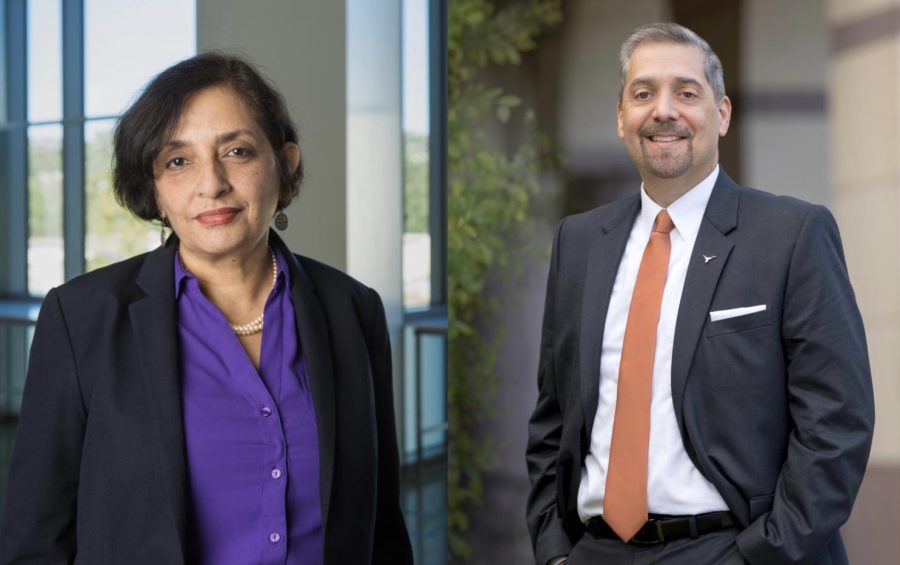
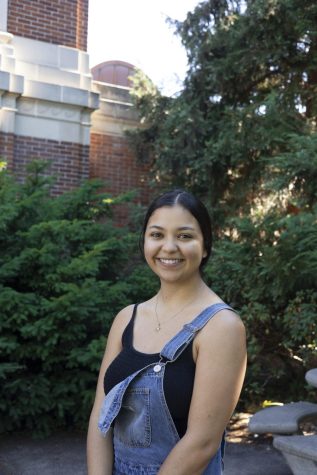



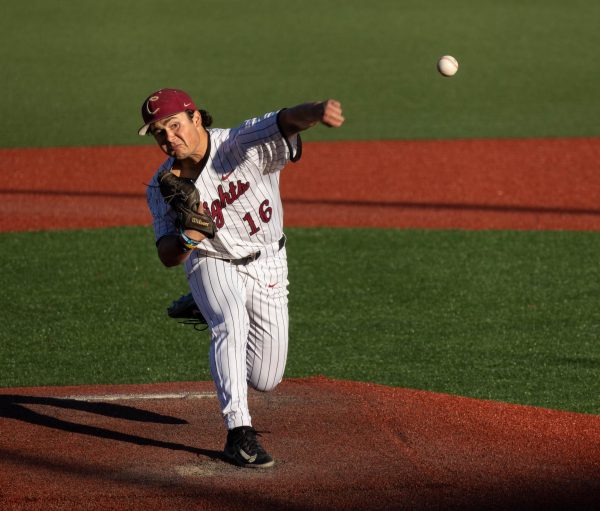

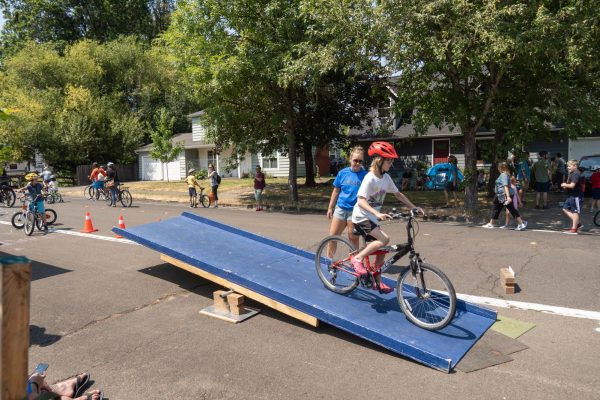





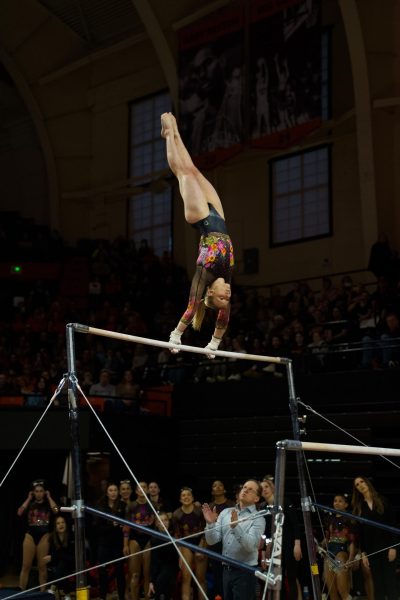
Steven Michael Anderson (OSU '11, '14) • May 28, 2022 at 3:21 pm
I’m excited for the next chapter!